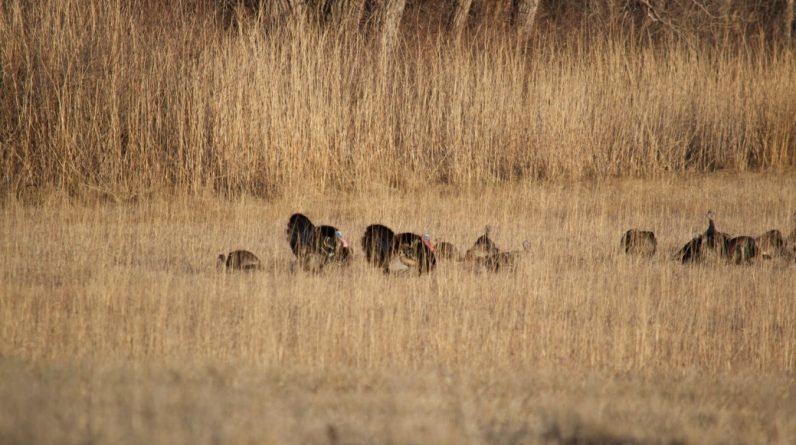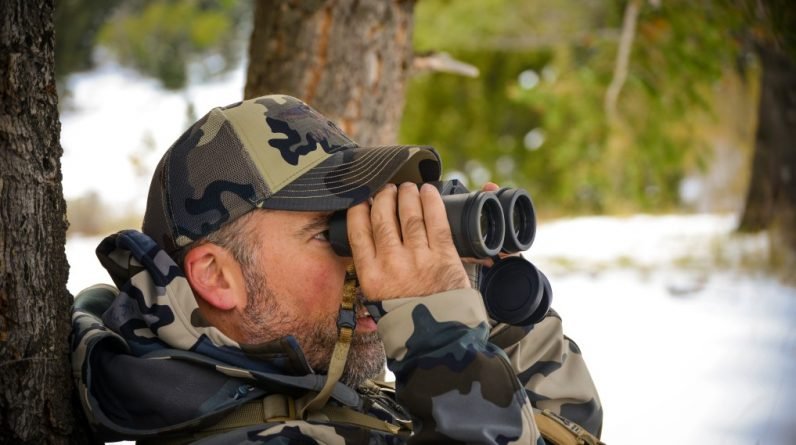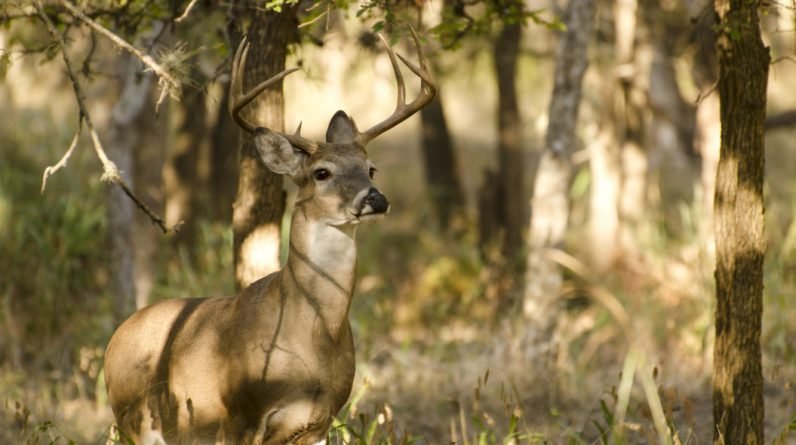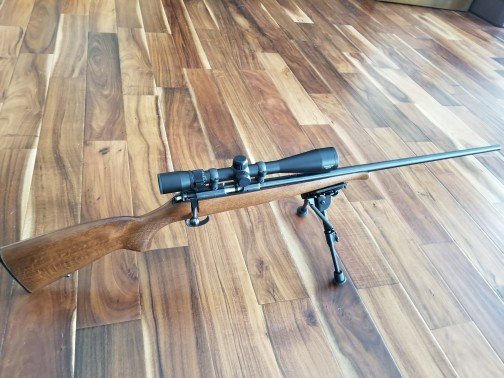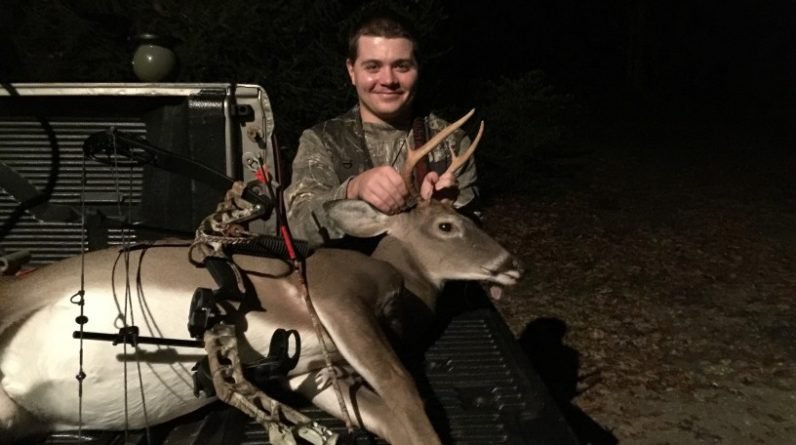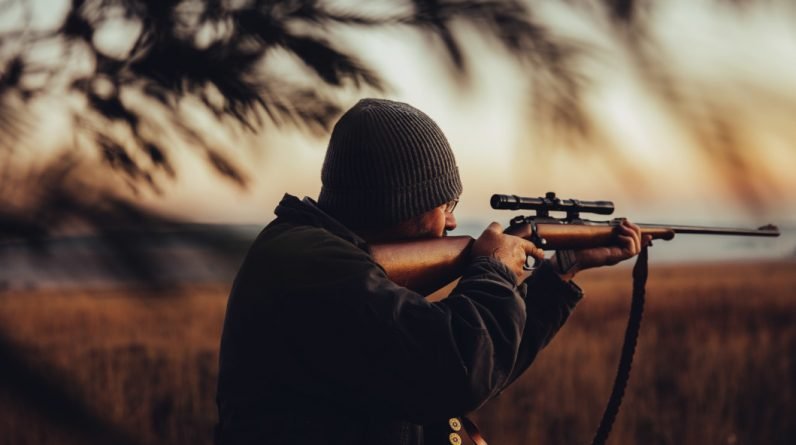
10 Tips to A Successful Hunt
10 Tips to a Successful Hunt-The thrill of the hunt is an experience like no other. Whether you’re a seasoned hunter or just getting started, success will come to those who are prepared and knowledgeable. It takes skill, patience, and dedication; however, there are certain tips that can help any hunter be successful. Here we present three key strategies for making every hunt a memorable one.
The first tip for being successful on your hunting trips is preparation. Making sure you have all necessary gear before heading out into the wilderness can save time, money, and stress in the long run. This includes basic items such as food and shelter as well as specialized equipment needed depending on what type of game you’re after. Do some research beforehand so that you know exactly what to bring with you on each specific outing.
Another important factor in having a successful hunting trip is understanding the terrain and weather conditions at your destination. Knowing where water sources and cover areas are located will give you an advantage over potential prey when it comes time to stalk them. Paying attention to wind direction also helps keep your scent from alerting animals of your presence too soon. Finally, keeping up-to-date on regional regulations about bag limits, seasons, safety requirements etc., ensures that everyone stays safe while following local laws during their hunts.
## 1. Research Your Target Species
Researching your target species is essential to a successful hunt. Knowing the habits and habitats of the animal you’re hunting will help you identify areas with high concentrations of that species. You can also get an idea of what type of terrain they prefer, when they are most likely to be active, and which times of year they are more abundant in certain locations. This knowledge helps hunters better prepare for their hunt by having the right gear, clothing, and food needed for success.
It’s also important to understand any legal restrictions or limitations on how many animals can be taken from a particular region or season so that there are enough resources for future generations to enjoy. Additionally, research should include learning about safety protocols and regulations related to firearms use as well as any environmental concerns such as conservation efforts that may affect hunting opportunities.
Effective research provides insight into where game might be found and increases the chances of bagging one’s desired prey. Hunters must stay up-to-date on changing conditions due to weather patterns or other factors like disease outbreaks that could impact wildlife populations across different regions. With thorough preparation before heading out into the field, a hunter has already put themselves at an advantage over those who did not take time to do their homework ahead of time.
## 2. Choose The Right Gear
Choosing the right gear for a successful hunt is essential. Not only does it allow you to be properly prepared, but also gives you an advantage in terms of comfortability and performance. No matter what type of hunting trip you’re planning – whether it’s stalking deer in the woods or duck hunting on open water – there are specific items that should come with you every time.
The first item to consider is your weapon. Depending on where you’re going, this could range from a rifle to a bow and arrow. Make sure to choose something with which you can shoot accurately and comfortably – no matter how sleek or powerful it looks. Researching different models before making a purchase will ensure that you get exactly what’s necessary for your particular situation.
The second important piece of kit would be ammunition and other accessories such as scopes and slings if applicable. It goes without saying that purchasing quality ammunition is paramount, as poor-quality rounds may cause jamming or misfires when least expected. Additionally, having the correct protective clothing and footwear is key; wet feet or a cold body won’t do any favors for your accuracy or focus.
If done correctly, taking into account all these considerations should guarantee a productive day out in the field regardless of weather conditions or terrain difficulties. One last thing: don’t forget good snacks! Staying fueled during long days spent trudging through thick undergrowth ensures maximum energy levels throughout the hunt.
## 3. Find The Best Spot
Finding the best spot to go hunting is a must. It can be difficult, but with some research and planning it can make your hunt successful.
The most important factor when choosing a spot is safety. You want to choose an area that has no potential for danger or accidents. Look for signs of animal activity, such as tracks or droppings, and consider wind direction before setting up camp. Also check if the terrain may present any obstacles that could hinder you from getting close enough to game animals.
Take into account how far away you are from people and other disturbances so that you won’t spook animals away from your position when they come near. Scout the surroundings in advance, look for water sources, food sources, cover areas – these will all influence where wildlife might like to hang out.
Once you have chosen the right spot for your hunt, take time to observe and learn about the environment around you; this increases your chances of success on your hunting trip significantly.
## 4. Know The Regulations
Hunting is a popular outdoor activity, but success relies on careful preparation and knowledge of the regulations. Knowing the rules and regulations can make or break your hunt!
First, you need to find out what laws are in place for hunting in your area. Local government websites often have information about these laws and restrictions so that hunters can ensure they stay within them. It’s important to follow all safety rules and legal limits when it comes to bagging game. This means paying attention to how many animals of each species you are allowed to take, as well as any additional limitations such as size requirements for certain types of game.
With this knowledge in hand, you will be better prepared for your hunt. You’ll be able to set realistic expectations for yourself, know where you should look for specific kinds of game and understand what type of equipment you need if there are any special considerations—such as archery instead of guns in some areas due to noise reduction guidelines. Understanding local regulations also helps avoid unnecessary fines or penalties from authorities who monitor recreational activities like hunting.
By learning the relevant laws before heading into the field, you can focus more on having an enjoyable experience while still abiding by all state-mandated policies. Being aware of these regulations allows you to enjoy the thrill of hunting without running afoul with authorities—ensuring a successful outing every time!
## 5. Practice Your Aim
Practicing your aim is an essential part of a successful hunt. This can be done through target practice, understanding the trajectory of your bullet or arrow, and developing muscle memory when shooting.
Targeting different objects at various distances can help you hone in on accuracy. By calculating the distance from you to the object as well as adjusting for wind speed and direction, hunters can increase their chances of hitting their mark. Additionally, learning how angles affect the flight path and power of your shot will help ensure that it reaches its intended destination.
Developing muscle memory enables a hunter to shoot without having to think about every aspect of aiming each time they pull back their bowstring or press their trigger finger down. With enough repetition and consistency, shooters should be able to accurately fire with minimal thought process involved.
It’s important for hunters to take the time to become familiar with all aspects of aiming if they want to have a successful hunt. Through continued practice and dedication, anyone can become a master marksman ready for any situation that arises while out in nature.
## 6. Prepare For Unexpected Weather
Hunting can be an exciting and rewarding experience. But it’s important to prepare for any eventuality, including unexpected weather changes. It can quickly turn a pleasant day in the woods into an uncomfortable one if you’re not prepared.
It’s always best to check the forecast before heading out on your hunt. That way, you’ll know what kind of clothing and gear you may need to bring along. Layering is essential – during cold weather, layers of lightweight fabrics help trap body heat and keep you warm without weighing you down too much. Bring extra socks, gloves, hats and scarves as well so that you have options when temperatures drop unexpectedly. Don’t forget waterproof boots or shoes either!
When it comes to rain or snow, make sure to protect all your electronics from getting wet. Waterproof cases are great for keeping phones and cameras safe and dry during inclement weather conditions; they also work for ammunition and other small items like wallets or keys that could be easily damaged by water exposure. A tarp might also come in handy – use it as shelter if there’s no nearby tree cover available, or throw it over yourself while waiting in a blind spot so that you won’t get soaked by passing showers.
No matter how unpredictable the weather gets, being proactive with preparation will ensure that your hunting trip goes smoothly so you still have fun out in nature!
## 7. Have A Backup Plan
7. Have a Backup Plan. Every experienced hunter knows that even the best-laid plans can go awry, so it’s important to always have a backup plan in case something unexpected happens while you’re out on your hunt. A good backup plan should include alternative routes, destinations and strategies for dealing with unanticipated weather or other issues.
Before heading out, make sure you know where you are going and how long it will take. If possible, bring along another person who is familiar with the area so they can help guide you if necessary. Also be prepared to adjust your route or destination as needed depending on changing conditions such as wind direction or sudden rainstorms. It’s also wise to pack an emergency kit containing items like flashlights, first aid supplies and extra food and water in case of any delays or detours due to environmental factors beyond your control.
Finally, no matter how well planned a hunt may be, there is always room for improvisation when things don’t quite turn out as expected. Stay alert to changes in the environment and be flexible enough to switch up tactics if necessary – this could mean using different types of calls than originally intended or changing position frequently throughout the day depending on what works best at each location. Being able to think quickly and adapt accordingly can often spell the difference between a successful hunt and one that ends in frustration!
## 8. Use The Right Bait
Bait is a key element to successful hunting. It entices the animal and gives them something to focus on, so you can go in for the kill. Knowing what bait works best will make your hunt more effective.
Using the wrong type of bait could lead to wasted time and energy. Different types of animals are attracted to different kinds of baits; fish like worms, while birds might be drawn by seeds or insects. Consider where you’re hunting and which species live there when deciding what kind of bait to use. You should also consider its size: too large and it won’t fit into smaller traps; too small and larger animals may not notice it at all.
It’s important that the bait looks good enough that an animal would actually want to take it. Some hunters coat their bait with things such as honey or molasses to make it look more appealing; this technique helps catch wary prey who have been hunted before. When done right, using the correct bait can greatly increase your chances of success when hunting – making sure you get the most out of every trip!
## 9. Utilize Wind Direction
Hunting is a sport that requires skill and preparation. Knowing how to utilize wind direction can be an essential part of a successful hunt. By understanding the principles behind scent displacement, hunters can increase their chances of success when out in the field.
The placement of bait or food will determine where animals are drawn for feeding. When hunting deer for example, it’s important to place bait downwind so that you don’t alert them with your human presence. The same principle applies when using a call; by positioning yourself upwind from your target animal, they won’t be able to detect your location until it’s too late.
Using the wind as an ally rather than an enemy allows experienced hunters to take advantage of natural conditions and maximize the odds of having a successful hunt. Learning which way the wind is blowing at all times takes practice but once mastered, it gives you insight into what parts of cover may hold more game. Wind direction also affects calling techniques – if done correctly, you’ll hear answers coming right back at you!
In short, utilizing wind direction properly during hunts can make all the difference between success and failure. It pays off to understand its movements and patterns in order to reap maximum rewards while on the trail.
## 10. Stay Vigilant And Enjoy The Hunt
Hunting is an exciting activity, but it can also be challenging. The right kind of preparation and attitude can make all the difference in a successful hunt. Staying vigilant and enjoying yourself while out hunting are two key components to having a good time.
The first step is staying alert. Pay close attention to your surroundings, listening for any signs that may indicate wildlife nearby or just changes in atmosphere. Be aware of how wind direction affects sound travel; this could give you valuable information about where animals might be located around you. It’s important to stay on high alert during your entire hunt so you don’t miss any potential opportunities for making a kill.
Taking some time to appreciate the beauty of nature and savor being out in the wild will contribute positively to your overall experience as well. While remaining focused on finding game, try to relax and enjoy being outdoors – take advantage of these moments away from everyday life! You never know what amazing things that you could encounter while out hunting, so keep an open mind and relish each moment spent outdoors.
Remember that hunting should always be fun above all else. With practice comes skill, so don’t get discouraged if results aren’t immediate – over time your success rate will gradually increase with patience and dedication. So go ahead, sharpen those skills and have a great hunt!
Frequently Asked Questions
## What Type Of Weapon Should I Use For Hunting?
Weapon selection is an essential part of a successful hunt. The type of weapon chosen will determine the effectiveness, safety and range of the hunt. It’s important to choose wisely when selecting a hunting tool as it could mean the difference between success and failure.
Rifles are often preferred for hunting due to their accuracy and long-range capabilities. They require more practice than other weapons but can be used with confidence in most situations. Shotguns are a good choice for those who want something more close quarters or fast-paced shots since they shoot multiple pellets at once. For small game such as birds, shotguns are ideal because they have short barrels that make them easier to maneuver in tight spaces.
Bowhunting requires patience, skill and dedication which makes it one of the more challenging types of hunting available. Bow hunters must learn how to accurately gauge distance, trajectory and wind speed while taking into account various environmental factors like terrain, weather conditions, animal movement patterns and scent trails. Bows also offer stealthy opportunities for sneaking up on quarry without being detected by them. This gives bowhunters an edge when trying to get close enough for a sure shot.
To ensure you’re successful on your next hunt, consider all aspects carefully before choosing your weapon: size of target animals, terrain features, weather conditions and personal preferences should all factor into your decision making process.. Doing so will help provide you with the best experience possible no matter what type of hunting you do!
## How Do I Get A Hunting License?
Hunting is an activity that requires a license and the right equipment. So, how do you get a hunting license? It’s not as difficult as it may seem.
To begin with, each state has its own regulations for obtaining a hunting license. You must be at least 18 years old to apply for one in most states, but there are some exceptions such as when you’re accompanied by an adult or if you have taken a hunter safety class. Additionally, many states require applicants to pass a written exam on hunting laws and proper use of firearms before issuing them a license.
Once you meet all these requirements and fill out the necessary paperwork, your application will likely need to be processed by the local wildlife department or other agency designated by your state government. In addition to providing proof of age and residency, they may also ask for additional information like past criminal records or any medical conditions that could impact your ability to hunt safely. After submitting everything required, it can take anywhere from two weeks up to several months before you receive your license in the mail.
In order to avoid delays in processing time, make sure all documents are filled out accurately and completely. If any questions arise during application review, contact the relevant agency quickly so they can help answer them promptly. With some preparation and diligence, getting your hunting license should be straightforward – just remember to research what specific steps are needed for yours!
## What Is The Best Way To Transport My Game?
Hunting is a popular activity and the best way to experience it is by knowing how to properly transport your game. Game can vary in size, from small wildlife such as rabbits or squirrels to larger animals like deer or elk. Depending on what you hunt, there are some tips that may help make transporting your game easier and more successful.
First off, having the right equipment for the job makes all the difference. When hunting large animals, a quality cart or wagon will be helpful in carrying them out of the woodlands with no strain on yourself. If you’re only targeting smaller critters, then bringing along several sturdy bags should do.
Next comes storage preparation: keep things cold and clean. Before taking any game home, prepare an ice chest with plenty of dry ice or regular packs of frozen foods inside; this helps ensure that your meat remains fresh during transportation. To further prevent spoilage while traveling, wrap each piece of meat thoroughly in plastic wrap before putting it into the cooler; never leave any unwrapped pieces exposed to air or other elements at risk of contamination. Finally, wash down your vehicle after unloading so that no bloodstains remain—you don’t want anyone mistaking your car for a killing field!
By following these steps when preparing to transport your game, success is almost guaranteed. A little care goes a long way in making sure every hunting trip ends on a positive note with full bellies around the dinner table.
## What Is The Best Way To Store My Hunting Equipment?
Hunting equipment can be expensive, so it is important to properly store your gear for maximum longevity. Storing hunting equipment correctly means that you will have the necessary tools and accessories when you go out on a hunt each time. Knowing what type of storage options are available and which ones work best for different types of equipment will help make sure all items remain in good condition throughout the year.
The first factor to consider when storing hunting supplies is location. You should store your hunting gear in an area with little temperature fluctuation, as this may cause condensation or mold growth. A dry basement or closet works well, but if these areas are not available, you can use specialized containers designed to keep humidity levels low. Make sure that whatever space you choose has adequate ventilation so moisture does not accumulate inside the container.
When packing away your gear, think about how fragile certain components may be or how much weight they must support before deciding on a storage option. For example, bulky items such as decoys or duck calls require sturdy cases made from materials like plastic or aluminum that won’t break down over time due to weather exposure. Smaller items such as ammunition and binoculars should also be kept in protective containers to prevent any damage from happening while stored away during non-hunting months.
It’s essential for hunters to take care of their equipment by investing in proper storage solutions and maintaining them regularly throughout the year. This way, when it comes time for hunting season again, everything will still be ready and waiting without having to worry about replacing any damaged goods due to improper storage conditions.
## What Safety Precautions Should I Take When Hunting?
Hunting is an enjoyable and challenging activity, but safety should always be a priority. Before going out on your next hunting trip, it is important to take the necessary precautions that will help keep you safe while you are in the field.
First of all, make sure you have the appropriate gear for whatever type of hunting you plan to do. This may include wearing blaze orange or other clothing meant for visibility, bringing a first aid kit with basic supplies such as gauze and bandages, having a compass and map of the area, and carrying extra water and snacks. It’s also wise to bring along some form of communication device in case of emergency situations.
In addition to making sure you have the right equipment, familiarize yourself with local laws and regulations surrounding hunting so that you stay within legal boundaries when pursuing game species. You should also know how to properly handle firearms before taking them into the field; this includes following all instructions given by the manufacturer as well as learning gun safety rules like keeping your muzzle pointed away from people at all times and being aware of your surroundings when handling weapons.
Finally, never hunt alone – bring at least one companion who can provide assistance if needed or call for help in emergencies. Doing so not only increases safety measures but will likely result in more successful hunts too!
## Conclusion
Hunting is an essential part of life for many people. By understanding the basics and taking the appropriate steps, anyone can have a successful hunt. It’s important to select the right weapon for hunting, get a valid license from your local Fish & Game office, transport your game safely and properly store all of your equipment when done. Lastly, be sure to take safety precautions at all times when out in the field – wear blaze orange clothing so you are visible to other hunters and always keep firearms unloaded until you are ready to shoot. With these tips in mind, anyone can go on a successful hunt and enjoy the beauty of nature while harvesting wild game responsibly.


